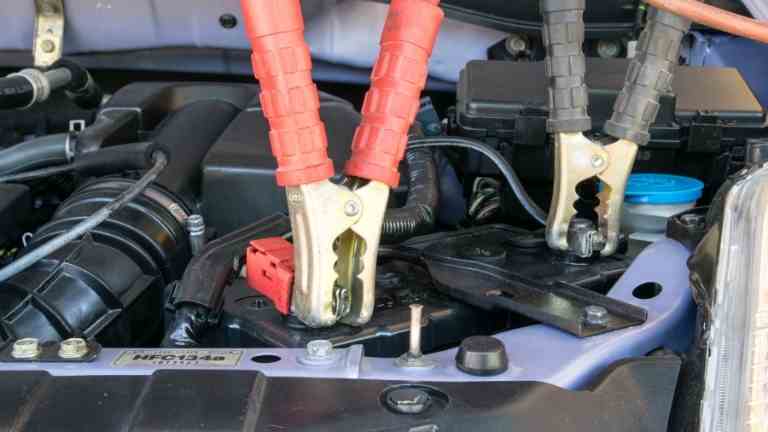The car battery has a lot of power: it can start your engine and run all the electrical systems in your car. But can it shock you? Let’s take a look at the facts about this.

Why Electric Vehicle Batteries Can Shock You?
Electric cars use a bunch of high voltage batteries to store power. They start at about 300 volts, but they can go as high as 500 volts. These batteries are more powerful than the regular car battery that starts your engine and runs other electrical systems in your vehicle.
The higher-voltage electricity coming from an electric car’s battery travels through cables into the motor, which turns it into mechanical energy for propulsion. If you touch those wires or cables during charging with wet hands, then you could get an electric shock of up to 240 volts – enough to kill someone who is not properly equipped with resisting materials!
The good news is that most people don’t need to worry about getting shocked by their electric car battery. The bad news is that if you do get shocked, it’s not a good experience!
High voltage power cords are well under the vehicle where, in ordinary circumstances, you won’t even bother seeing them. Plus, those cables are color-coded with necessary safety marks close to them so that you can easily eliminate the risk of getting a shock.
Why 12volt Car Batteries Can’t Shock You?
I’m sure you’ve heard horror stories about people getting electrocuted by car batteries, and you might be wondering if it’s true. The answer is a big no!
A 12-volt battery can’t shock someone because they’re only supplying enough voltage to operate the lights in your vehicle. These types of batteries are designed specifically for low current discharge so that they don’t pose any risk when shorted out or drained below an acceptable level.
This means that even if you touch the battery terminal, it will not have any potential to cause a spark which could lead to injury or death! In order to significantly injure somebody with electricity from a battery, one would need at least 120 volts worth of power.
However, touching the terminal with a wet hand can give you an unpleasant tinger for a moment. So, it is recommended that you don’t touch the battery terminal with bare hands despite its being not dangerous.
Is it Safe to Touch a Car Battery When the Fuse is Blown?
Some people have the misconception that it is safe to touch a car battery when the fuse is blown, but this isn’t true.
If you open up your vehicle’s hood and then grab onto the terminals of a car battery with an exposed or shorted wire, there is potential for a mild electric shock because electricity can flow from one terminal to another in complete disregard of insulation.
In other words, just because something doesn’t look like it could be dangerous at first glance doesn’t mean that it can’t hurt you.
What are the Dangers that Can Happen Due to Car Battery?
As car batteries age, they can leak corrosive acid and other hazardous materials. They also produce explosive hydrogen gas because of the buildup of gases inside the battery box. As a result, there are potential dangers that you should be aware of when it comes to using car batteries for your everyday purposes.
Plus, car batteries can explode if you try to open them up without following the correct and safe procedure.
Safety Reminders When Working Around Car Batteries:
- Never attempt to open up the battery as it can cause serious injury if the acid comes in contact with your skin.
- Many times car batteries’ outer protective layer gets filled with acidic substances. So, it’s not recommended to touch the battery without cleaning the plastic body.
- Don’t wear any metal jewelry while working on cars (metal against metal may cause sparks).
- Wear insulated gloves if possible. This will help you eliminate the risk of getting in contact with battery acid or getting unpleasant tinkering due to the accidental touch in the battery terminal.
- Place a rag between you and the car’s battery terminals if it is possible. Especially, if you are not wearing protective gloves.
- Always act according to the manual that comes with the battery. You shouldn’t attempt anything that is prohibited by the battery manufacturer. It can pose a serious threat to your well-being.
- Bad batteries should be dealt with carefully with proper safety protocols.
It’s easy to see why some people might be tempted to touch an exposed battery or shorted wire, but this can result in serious injury. It also illustrates how even seemingly harmless objects can become dangerous when they are damaged or worn out over time.
Conclusion
It’s important to know the basics of how car batteries work and what precautions you should take when working with them.
You’ll be better equipped to handle any situation that arises, for example, if your battery is leaking acid or there is a short circuit.
We hope this blog post has helped educate you about this essential piece of automobile technology so that next time something goes wrong, you can fix it quickly and without fear!